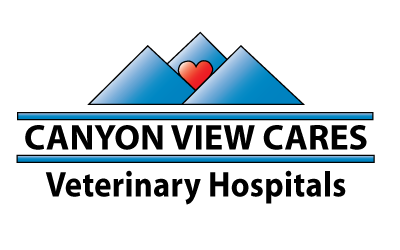As a pet owner, you consider your animal a cherished part of the family. You work hard to create a safe and loving home, but even the most careful household can have hidden dangers. Many everyday items that are perfectly safe for humans can be surprisingly toxic to dogs and cats. An accidental ingestion can quickly turn a normal day into a veterinary emergency.
At Canyon View Cares Veterinary Hospital Layton, our mission is to deliver compassionate, comprehensive care tailored to the best interests of you and your furry companion. As a top-rated veterinarian in Layton, we believe that helping our community prevent accidents is a key part of our job. This guide outlines ten common household toxins, so you can better protect your pet from a preventable emergency.
1. Human Medications
One of the most frequent causes of pet poisoning is the accidental ingestion of human medicine. A pet's metabolism is very different from a person's, and a standard human dose can have devastating effects on an animal. Over-the-counter pain relievers are a significant concern. Acetaminophen (Tylenol) is extremely toxic to cats, causing severe damage to their red blood cells and leading to liver failure. Other common drugs like antidepressants, heart medications, and even certain vitamins can also be poisonous. Always keep all medications—for both humans and pets—in a sealed container and stored securely in a cabinet your pet cannot access.
2. Common Household and Garden Plants
While plants bring beauty to a home, many popular varieties are toxic to pets. Before introducing new flora to your home or garden, it is essential to confirm that it is safe for curious cats and dogs.
- Lilies: True lilies (such as Easter, Tiger, and Stargazer lilies) are a deadly threat to cats. Ingesting any part of the plant, including a small amount of pollen groomed from their fur, can result in acute kidney failure.
- Sago Palm: Highly toxic to both dogs and cats. The seeds contain the highest concentration of poison and can lead to severe vomiting, seizures, and liver failure.
- Oleander, Azaleas, and Rhododendrons: Popular landscaping shrubs that contain toxins disrupting heart function and causing serious cardiac complications.
- Tulips and Hyacinths: The bulbs are the most toxic part. If ingested, they can cause gastrointestinal distress, drooling, and lethargy.
- Marijuana: Accidental ingestion can cause disorientation, vomiting, tremors, seizures, or coma in pets.
3. Human Foods
Sharing a bite of your meal may seem like a kind gesture, but many human foods can cause serious health problems for pets, sometimes requiring emergency care.
- Chocolate: Contains theobromine, a toxin dogs cannot metabolize efficiently. Dark chocolate and baking chocolate pose the greatest risk.
- Grapes and Raisins: Can cause sudden, acute kidney failure in dogs.
- Xylitol: A sugar substitute found in many sugar-free products. In dogs, it triggers a massive insulin release, causing life-threatening drops in blood sugar and potential liver failure.
- Onions, Garlic, and Chives: These cause oxidative damage to red blood cells in both cats and dogs, leading to anemia.
- Macadamia Nuts: Can cause weakness, tremors, vomiting, and hyperthermia in dogs.
- Alcohol: Even small amounts can cause intoxication, respiratory distress, and central nervous system depression in pets.
4. Household Cleaning Products
The products we rely on to keep our homes clean often contain harsh chemicals. Bleach, ammonia-based cleaners, toilet bowl scrubs, and drain openers can cause severe chemical burns, respiratory issues, and stomach pain if ingested. Keep pets in another room when cleaning and ensure the area is well-ventilated and completely dry before re-entry.
5. Pest Control Products
Insecticides, rodenticides (rat poison), and snail bait are designed to be lethal, and they are just as deadly to pets. Many of these poisons contain appealing ingredients for pests, which also attract curious animals. Rodenticides are especially dangerous, causing effects ranging from internal bleeding to brain swelling.
6. Antifreeze
Ethylene glycol, the active ingredient in most antifreeze, has a sweet taste that pets find appealing. Even a single lick can cause irreversible kidney failure. Early symptoms may mimic drunkenness, progressing rapidly to severe illness. Always clean up antifreeze spills immediately and thoroughly.
7. Batteries
Batteries of all types are hazardous. If chewed or swallowed, alkaline or acidic materials can leak, causing chemical burns to the mouth, throat, and stomach. Small button batteries are particularly dangerous, as they can lodge in the esophagus and cause tissue damage quickly.
8. Potpourri
Liquid and dried potpourri can add fragrance to a home but pose risks to pets. Liquid potpourri often contains detergents that cause chemical burns if ingested. Dried potpourri can cause stomach upset or intestinal blockage if eaten.
9. Fabric Softener Sheets
While dryer sheets have a strong fragrance that may attract pets, they contain detergents that can cause mouth ulcers and stomach irritation. Ingesting an entire sheet can cause obstruction in the gastrointestinal tract.
10. Fertilizers and Cocoa Mulch
Many lawn and garden products can be toxic. Fertilizers may contain harmful chemicals, and cocoa mulch contains theobromine—the same toxin in chocolate. Even “natural” products like bone meal can cause blockages if consumed.
Compassionate Care in Layton When You Need It
Pet-proofing your home is one of the most effective ways to protect your companion. By being aware of these common dangers, you can prevent a tragic and costly accident.
However, accidents can still happen. If you suspect your pet has ingested a toxic substance, immediate action is critical. Canyon View Cares Veterinary Hospital Layton is a full-service pet hospital, ready to provide compassionate, expert care. For services or questions, contact our caring team right away or book online today.

